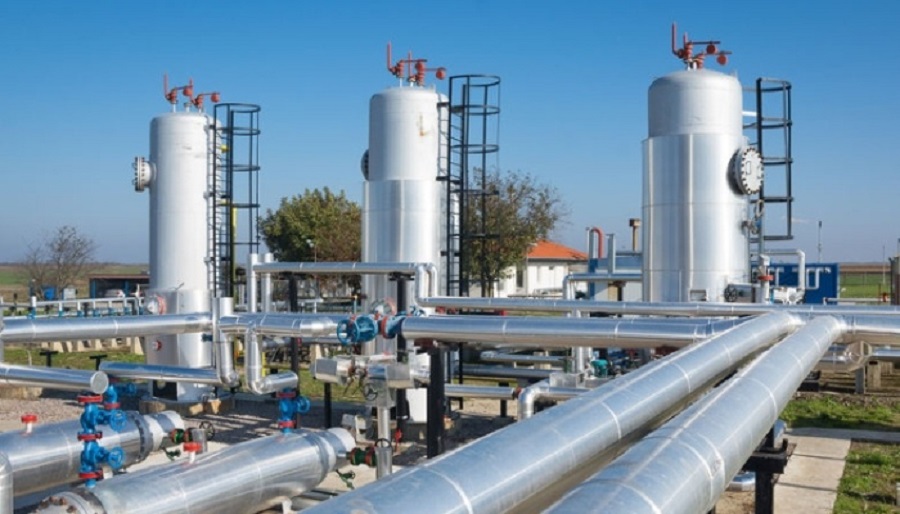Poised to produce at least 300 mmscf of natural gas and provide 5 million Nigerians with power supply, the Assah North-Ohaji (ANOH) Gas Project Company (AGPC) closed a $260 million debt financing arrangement on Monday this week, achieving complete funding for its $650 million gas processing facility in Imo State, Nigeria.
This is a momentous achievement not just for the company or its shareholders, but also for Nigeria, as the deal constitutes one of Nigeria’s 7 critical gas development projects to drive the next phase of growth for the gas industry. The deal, like the NLNG Train 7 deal which brought a similar level of ebullience to the Nigerian oil and gas community, is a public-private partnership (PPP) and is equally spearheaded by an incorporated joint venture.
READ: NNPC signs gas development and commercialization deal with SEEPCO
The ANOH project is also important because it feeds the country’s three key gas infrastructures: the Escravos-Lagos Pipeline (ELPS), the Obiafu-Obrikom-Oben (OB3) Pipeline and the Ajaokuta-Kaduna-Kano (AKK) pipeline.
In December 2020, the Minister of Petroleum for State, Chief Timipre Sylva, declared the decade 2021 to 2030 as the decade of gas, an offshoot of the declaration of 2020 as the year of gas in line with the global clamour for reduced carbon footprint in energy production. With its 202 tcf of proven gas reserves, the time has come for the country to develop its gas assets and strengthen its production.
Consequent to this declaration by the Minister of the year of gas in early 2020, the market saw significant attention to gas development- like the flag off of the $2.8 billion AKK pipeline, the commencement of bidding for flare sites on the Gas Flare Commercialisation Program, the NLNG train 7 completion, the growth of the LPG market, the move to promote gas-fired automobiles by the Federal Government and even regulatory moves like the introduction of the Gas Network Code. This in no small way assured investors and various stakeholders of Nigeria’s commitment to gas development – even though there still leaves much to be desired, particularly with marginal field gas acreages.
READ: NNPC to replace all JV projects with IJV model
The ANOH deal is a pat-on-the-back kind and perhaps there are lessons to be had from it. The structure of the deal is such that ANOH Gas Processing Company (AGPC) is an incorporated joint venture of the Nigerian Gas Company (NGC)- a subsidiary of the Nigeria National Petroleum Company (NNPC) – and Seplat Petroleum Development Company (Seplat), leading indigenous oil and gas company.
The project is the first standalone midstream incorporated joint venture (IJV) gas business between NNPC and a private company – a template PPP engagement – and may very likely serve as a forerunner for many other midstream gas development public-private partnerships, and more importantly, IJVs.
It is no secret that Nigeria is in dire need of development of its midstream gas sector, for processing, transporting, marketing and storage of natural gas, so an IJV filling this gap with a project set to deliver 1, 200MW of power to Nigerians, amongst other things like driving the growth of LPG, is a major win. The success story of NLNG with its IJV structure certainly encouraged ventures like this. With ANOH now, there begins to form something akin to a playbook for others springing up in the future.
READ: How Access Bank got Japaul to pay up N37 billion loan that had gone bad
Interestingly, with the ANOH deal, we see a considerable involvement of local financiers in the lending structure. In the past, financing of such nature would have largely come from offshore financiers, particularly at such a time where the local financial market is attempting to recover from the shocks of COVID-19, aggravated by bank lending to oil companies which has formed a substantial part of non-performing loans.
This evinces that the local market is becoming more amiable to gas development, and that it is equally encouraged by government regulation moving favourably in that direction. Yet we cannot also ignore the role the IJV structure played in realising the deal. The IJV structure has proved very beneficial to deals in the oil and gas sector, particularly for sourcing financing, as it both assures investors of transparency and accountability and shields the corporation from the operational hazards of the shareholders.
READ: Afreximbank disburses $250 million to TNOG to acquire 45% stake in oil lease
For this reason, it is a welcome development that the current version of the PIB before the legislature contains specific provisions in Section 65 empowering NNPC to set up IJVs with private companies, although the language of the text seems to refer only to upstream operations.
With this deal, Nigerians should expect to see more power in the near future. We should also expect to see more midstream gas projects replicating this one with the renewed confidence a deal like this has brought for the local gas market. It appears also that sooner than later, IJVs will be the preferable operating structure for facilitating public-private partnerships in the Nigerian oil and gas space.
About author
Caleb Adebayo is an LLM Candidate, Energy and Environmental Law at New York University School of Law. His interest lies at the intersection of Energy, Environment and Finance and he is keen on the interplay between Law, Policy and Energy Markets. Prior to taking up his LLM, he worked on the Energy team of a tier 1 Nigerian law firm. A nominee for The Future Awards Prize for Lawyers, he has written widely on the subject of Energy and Environmental Law. He is also a member of the New York City Bar Energy Subcommittee


















